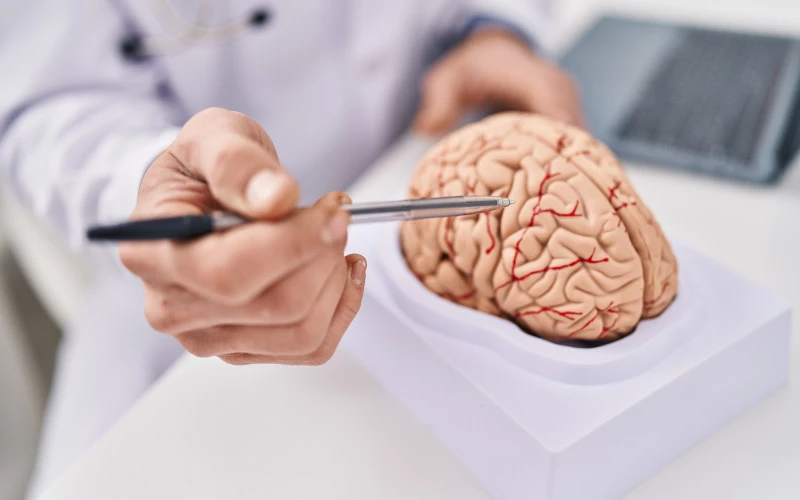The Value of Seeking Aid from the Best Psychologist in Delhi for Stress Monitoring
The Value of Seeking Aid from the Best Psychologist in Delhi for Stress Monitoring
Blog Article
Psych Therapy: A Comprehensive Overview to Techniques and Results

Cognitive-Behavioral Therapy
Cognitive-Behavioral Treatment (CBT) is an extensively made use of psychotherapeutic strategy that concentrates on identifying and modifying useless reasoning and habits patterns. Developed in the 1960s by Aaron T. Beck, CBT combines behavior and cognitive concepts to deal with different psychological health and wellness issues, including clinical depression, stress and anxiety, and stress-related disorders. The property of CBT is that maladaptive thoughts contribute to psychological distress and maladaptive behaviors. By restructuring these ideas, people can accomplish significant renovations in their emotional health and daily performance.
Strategies such as cognitive restructuring, exposure treatment, and skill-building exercises are typically employed. Cognitive restructuring includes tough and modifying adverse idea patterns, while exposure treatment intends to reduce fear and anxiety via gradual direct exposure to been afraid things or circumstances.
Evidence-based research study supports the efficacy of CBT for a vast array of emotional disorders - Best Psychologist in Delhi. Its focus on skill acquisition and self-help strategies equips clients to proceed progress individually after treatment concludes. The flexibility and effectiveness of CBT have made it a keystone in modern psychotherapeutic technique
Psychodynamic Techniques
Rooted in the early concepts of Sigmund Freud, psychodynamic techniques concentrate on exploring the unconscious mind and its impact on actions and feelings. These methods aim to reveal surprise thoughts and sensations that may be driving maladaptive actions and mental distress. Central to this strategy is the principle of inner problem, often coming from unresolved previous experiences, especially those from childhood.
Therapists making use of psychodynamic strategies use a number of vital approaches, consisting of cost-free organization, where people are encouraged to speak freely to expose subconscious product, and desire evaluation, which interprets the hidden content of desires. In addition, the exploration of transference and countertransference dynamics within the therapeutic partnership is crucial. These communications can give understandings right into the individual's interior globe and relational patterns.
Psychodynamic treatment is commonly longer-term contrasted to other modalities, providing a deep and detailed understanding of the person's psyche. Study shows that it can be specifically efficient for intricate psychological health and wellness issues, such as personality disorders and chronic depression. By fostering self-awareness and psychological insight, psychodynamic therapy seeks to bring unconscious product to consciousness, enabling individuals to accomplish purposeful and enduring modification in their lives.
Humanistic Strategies
Structure on the foundations laid by psychodynamic methods, humanistic techniques use a distinct viewpoint concentrated on private potential and self-actualization. Coming from in the mid-20th century, these methods focus on the intrinsic goodness and growth potential of people, highlighting a holistic view of human experience. Secret figures such as Carl Rogers and Abraham Maslow have actually significantly affected this restorative method, which includes techniques like client-centered treatment and Gestalt treatment.
Client-centered therapy, created by Rogers, plays a pivotal duty in humanistic strategies. It depends on the therapist offering a setting of genuine positive respect, empathy, and congruence. This cultivates a safe space for clients to explore their feelings and experiences without judgment, facilitating self-discovery and individual growth. The specialist's duty is even more of a facilitator than an authority, encouraging clients to harness their internal sources for healing.
Gestalt therapy, another essential humanistic method, highlights present moment awareness and the assimilation of mind and body. By focusing on the "present moment," customers acquire greater insight right into their current emotions and habits. Methods such as role-playing and led visualization are frequently employed to help customers get a much deeper understanding of themselves, eventually resulting in enhanced self-awareness and fulfillment.
Integrative Therapies
Integrative therapies stand for a synthesis of different restorative techniques tailored to meet the special requirements of each customer. This technique recognizes the complexity of human psychology and see this the complex nature of psychological health problems. By incorporating aspects from different schools of psychotherapy-- such as cognitive-behavioral treatment (CBT), psychodynamic treatment, and humanistic strategies-- integrative treatments supply an even more flexible and holistic therapy paradigm.
Specialists of integrative treatment analyze each client's specific needs, symptoms, and personal history to devise a tailored treatment strategy. This customized approach improves the capacity for healing success by dealing with the root causes of psychological distress and promoting general well-being. Methods might consist of mindfulness exercises, cognitive restructuring, and emotional handling, each chosen to target different facets of the client's concerns.
In addition, integrative treatments stress the restorative connection, checking out the client-therapist bond as a crucial part of efficient treatment. This relationship fosters a helpful setting where clients feel secure to check out and resolve their issues. The versatility of integrative treatments makes them appropriate for a broad variety of conditions, including anxiety, depression, injury, and interpersonal troubles, thereby raising their applicability and efficiency in varied scientific setups.
:max_bytes(150000):strip_icc()/types-of-psychologists-and-what-they-do-2795627_v1-9a9b856f7d1c494aafb96f59e4843f55.png)
Gauging Treatment End Results
Evaluating the performance of psychiatric therapy is crucial for both clients and medical professionals to guarantee that the therapy is generating the preferred outcomes. To achieve this, numerous approaches and tools are used to gauge treatment end results systematically. Standard assessment instruments, such as the Beck Depression Supply (BDI) and the Generalized Stress And Anxiety Disorder 7 (GAD-7), offer measurable information on sign severity and changes in time.
In addition to standard devices, qualitative methods like customer self-reports and scientific interviews supply beneficial understandings into the personal experiences and regarded progress of clients. Routinely scheduled analyses, typically at the beginning, axis, and end of treatment, help in tracking the trajectory of renovation or determining locations needing adjustment.
Outcome dimension is pop over to these guys not limited to symptom decrease; it likewise incorporates functional renovations in every day life, such as better social partnerships, boosted work performance, and boosted general well-being. Modern developments in electronic health have introduced mobile applications and on the internet systems that promote real-time tracking and comments, even more refining the analysis process.
Ultimately, a comprehensive technique to measuring treatment outcomes makes certain that restorative treatments work, efficient, and tailored to satisfy the specific needs of clients, thereby enhancing the general healing experience.
Conclusion
Humanistic strategies concentrate on personal growth and self-actualization, while integrative treatments combine several approaches for tailored therapy plans. Examining therapy outcomes via qualitative methods and standardized assessments makes sure a detailed understanding of effectiveness, inevitably assisting customers toward withstanding psychological wellness enhancements.
From the organized approach of Cognitive-Behavioral Therapy (CBT) to the deep exploration of the unconscious in psychodynamic treatment, each approach brings distinct benefits. Its advice focus on ability acquisition and self-help techniques empowers clients to continue progress separately after therapy wraps up (Best Psychologist in Delhi). Secret figures such as Carl Rogers and Abraham Maslow have significantly influenced this restorative method, which encompasses methods like client-centered therapy and Gestalt therapy

Report this page